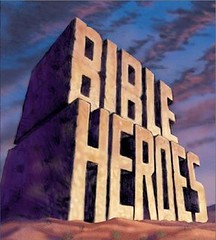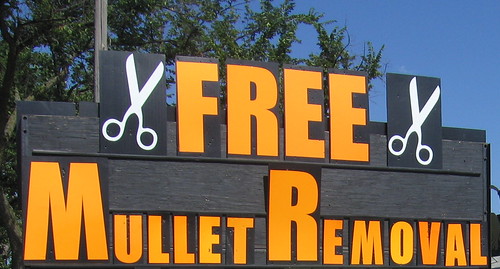A friend of mine recently sent me this quote from Oscar Wilde's The Picture of Dorian Gray saying that she thought of me for some reason when she read it:
"Oh, I can't explain. When I like people immensely I never tell their names to anyone. It is like surrendering a part of them. I have grown to love secrecy. It seems to be the one thing that can make modern life mysterious or marvelous to us. The commonest thing is delightful if one only hides it. When I leave town now I never tell people where I am going. If I did, I would lose all my pleasure. It is a silly habit, I dare say, but somehow it seems to bring a great deal of romance into one's life."
She asked if it meant anything to me. My first thought was in regard to my recent trip to England during which I had no communication with the outside world and only left the contact number of my friend in Cambridge for my boss and my parents. No one really knew much about where I was going or what I would be doing. Partly because I didn't know myself, nor did I care, and thought it would be a wonderful adventure to steep myself in the mystery of it all. But then what my young Dorian Gray friend didn't know is that while on this mysterious adventure of a trip I decided to make such mysterious adventures a habit...twice a year if finances allow, but most assuredly every year at spring break as long as I'm teaching. And yes, I did decide that I would not tell anyone where I would be going.
As I thought more about it, I realized that new decision is probably a more healthy hold over from the days when I did more exclusively cherish secrecy, locking it "up safe in the casket or coffin of [my] selfishness". It was once a pet that I would stroke tenderly and privately, consoling myself with the thought that no one knew what I was going through nor did they care. I love C.S. Lewis all the more now that I have been to his house, his colleges, his pub, and his grave. But before I knew anything about him, or cared anything for him, this was the quote that lead me to the path of sharing life through community:
"Love anything and your heart will be wrung and possibly broken. If you want to make sure of keeping it intact you must give it to no one, not even an animal. Wrap it carefully round with hobbies and little luxuries; avoid all entanglements. Lock it up safe in the casket or coffin of your selfishness. But in that casket--safe, dark, motionless, airless--it will change. It will not be broken; it will become unbreakable, unpenetrable, irredeemable. To love is to be vulnerable." --The Four Loves
Our natural tendencies, both good and bad, are a part of who we are, but they need not define us or control our lives. Nor should we rely on them, depend on them, as an excuse or a crutch never to be overcome. To come face to face with the important truth that our greatest strengths can be our greatest weaknesses, and our greatest weaknesses can be our greatest strengths is indeed a sobering yet hope-filled realization!
Pensive, a. to think or reflect, to weigh or consider. Discernment, n. the power or faculty of the mind by which it distinguishes one thing from another; insight; acumen; as, the errors of youth often proceed from the want of discernment. (Webster's Dictionary)
Thursday, March 30, 2006
Wednesday, March 29, 2006
Light Bulb Controversy
I have a new question to come back with when confronted by the infamous “light bulb joke”. So when I’m next asked by a dear Baptist friend:
“How many Presbyterians does it take to change a light bulb?”
I will reply with:
“Well, is it a European or American light bulb?”
I have a feeling that I could catch them so off guard that rather than answering my question they would once again reply with one of their own, “What?!”
It’s true. There is a difference. I have now seen it for myself and have lived to tell about it. One day last week, while in my bedroom in Cambridge, I thought I had flipped the last switch of a light bulb’s life. Devastated by the blow, I sought to mend, or if not mend—*gasp*—replace. I stood on top of my bed, did little more than merely touch the light bulb, and it fell into my hand. First I performed the shaking test to see if it would respond with inner scratching indicating that it’s innards were in pieces. Then the blackout test—stare at the top of the light bulb to see if it is darkened from internal combustion. Procedures 1 and 2 passed with flying colors—no dead light bulb here. Procedure 3: screw it back in and try flipping the switch again. After all, it could have just been really loose and shifted loose from its proper connective energy flow. Problem. There are two pointy things poking out of either side at the end of the light bulb and there is no sign of any screwage capability. I’m baffled. But I give the Europeans the benefit of a very large doubt by assuming that the internal workings of the light fixture itself accommodates a screwing gesture for this type of peculiarly pronged piece of work.
It took this Presbyterian two minutes to put the light bulb back in. Eight if you count all the testing and mental processing time. But only then after I decided to look up under the light fixture to see that, while it did not accommodate any sort of screwage, it did in fact have two little holes—the size of those pointy-sticky-outy things on the light bulb—to accommodate proper twistage of the light bulb.
Frustrated, but done.
Flipping the switch…“And God said, ‘Let there be light’!”
So the next time a light bulb joke comes my way from a friend, my first question will be, “Is it a European light bulb or and American light bulb”. And if I really just have to put it in layman’s terms for them, I’ll just tell them, “Well, it’s the difference between threaded or prongy-pokey but it really has to do with the difference between screwage and twistage”.
“How long does it take one Americans to properly replace a European light bulb?”
(Blog disclaimer: And if I must tell my joking light bulb friend about my personal experience with the European light bulb, I will most assuredly leave out the end of the story. I went down stairs and my dear host, Jayme, told me the power had gone out for a few minutes. I stayed quiet and didn’t care to mention that it was probably just under ten minutes of power failure. How did I know that? Because it took me eight minutes to assess the problem, and a good two to properly replace the light bulb and flip the switch again!)
I will reply with:
I have a feeling that I could catch them so off guard that rather than answering my question they would once again reply with one of their own, “What?!”
It’s true. There is a difference. I have now seen it for myself and have lived to tell about it. One day last week, while in my bedroom in Cambridge, I thought I had flipped the last switch of a light bulb’s life. Devastated by the blow, I sought to mend, or if not mend—*gasp*—replace. I stood on top of my bed, did little more than merely touch the light bulb, and it fell into my hand. First I performed the shaking test to see if it would respond with inner scratching indicating that it’s innards were in pieces. Then the blackout test—stare at the top of the light bulb to see if it is darkened from internal combustion. Procedures 1 and 2 passed with flying colors—no dead light bulb here. Procedure 3: screw it back in and try flipping the switch again. After all, it could have just been really loose and shifted loose from its proper connective energy flow. Problem. There are two pointy things poking out of either side at the end of the light bulb and there is no sign of any screwage capability. I’m baffled. But I give the Europeans the benefit of a very large doubt by assuming that the internal workings of the light fixture itself accommodates a screwing gesture for this type of peculiarly pronged piece of work.
It took this Presbyterian two minutes to put the light bulb back in. Eight if you count all the testing and mental processing time. But only then after I decided to look up under the light fixture to see that, while it did not accommodate any sort of screwage, it did in fact have two little holes—the size of those pointy-sticky-outy things on the light bulb—to accommodate proper twistage of the light bulb.
Frustrated, but done.
Flipping the switch…“And God said, ‘Let there be light’!”
So the next time a light bulb joke comes my way from a friend, my first question will be, “Is it a European light bulb or and American light bulb”. And if I really just have to put it in layman’s terms for them, I’ll just tell them, “Well, it’s the difference between threaded or prongy-pokey but it really has to do with the difference between screwage and twistage”.
(Blog disclaimer: And if I must tell my joking light bulb friend about my personal experience with the European light bulb, I will most assuredly leave out the end of the story. I went down stairs and my dear host, Jayme, told me the power had gone out for a few minutes. I stayed quiet and didn’t care to mention that it was probably just under ten minutes of power failure. How did I know that? Because it took me eight minutes to assess the problem, and a good two to properly replace the light bulb and flip the switch again!)
Monday, March 13, 2006
Cambridge Bound

Prologue to the Canterbury Tales:
Whan that Aprille with his shoures sote
The droughte of Marche hath perced to the rote,
And bathed every veyne in swich licour,
Of which vertu engendred is the flour;
Whan Zephirus eek with his swete breeth
Inspired hath in every holt and heeth
The tendre croppes, and the yonge sonne
Hath in the Ram his halfe cours y-ronne,
And smale foweles maken melodye,
That slepen al the night with open ye,
(So priketh hem nature in hir corages):
Thanne longen folk to goon on pilgrimages
(And palmeres for to seken straunge strondes)
To ferne halwes, couthe in sondry londes;
And specially, from every shires ende
Of Angle-Lond, to Canterbury they wende,
The holy blisful martir for to seke,
That hem hath holpen, whan that they were seeke.

Thursday, March 09, 2006
Felt Board Friends
 Why is it that all the biblical heroes I heard stories of as a child were male? Not that I'm a man-hater—far from it! But really, apart from Mary the mother of Christ—oh, and John the Baptist had to be born some how too, so I heard Elizabeth's name—I recall no stories of any other women. I remember felt sheep, felt thickets, felt alters, felt thrones, felt loaves and fishes, felt kings, felt shepherds—one could say I felt a lot as a child. But that sisterly struggle between Leah and Rachel was not among it. The youthful foolishness of Dinah was never conveyed. The motherly caring of the Shunammite woman was never experienced. Nor was the crucial stalwartness of Deborah. But more than my wrestling with the fact that all my childhood heroes of the faith were encouraged to be men, is my wrangling with the fact that all my childhood heroes of the faith were perfect. Perfect specimens of wit, wisdom, and holiness...and those chiseled felt features weren't so bad looking either! My heroes were noble champions for all that was good, true, and just. They prayed all the time, even in bed—which I always thought was a feat in and of itself to be in bed praying and not go to sleep. They talked to God as if He were their best bud. And whenever God helped they rip that lion up, shoot that giant down, or fight those evil idol worshippers away, they were always good about telling God thanks.
Why is it that all the biblical heroes I heard stories of as a child were male? Not that I'm a man-hater—far from it! But really, apart from Mary the mother of Christ—oh, and John the Baptist had to be born some how too, so I heard Elizabeth's name—I recall no stories of any other women. I remember felt sheep, felt thickets, felt alters, felt thrones, felt loaves and fishes, felt kings, felt shepherds—one could say I felt a lot as a child. But that sisterly struggle between Leah and Rachel was not among it. The youthful foolishness of Dinah was never conveyed. The motherly caring of the Shunammite woman was never experienced. Nor was the crucial stalwartness of Deborah. But more than my wrestling with the fact that all my childhood heroes of the faith were encouraged to be men, is my wrangling with the fact that all my childhood heroes of the faith were perfect. Perfect specimens of wit, wisdom, and holiness...and those chiseled felt features weren't so bad looking either! My heroes were noble champions for all that was good, true, and just. They prayed all the time, even in bed—which I always thought was a feat in and of itself to be in bed praying and not go to sleep. They talked to God as if He were their best bud. And whenever God helped they rip that lion up, shoot that giant down, or fight those evil idol worshippers away, they were always good about telling God thanks.I'm a perfectionist. It's taken me years to admit that and still I'm apt to deny it when circumstances comply. I'm attracted to the flawless because I hate mistakes. I've been learning the art of delegation, but I've found that my brand of delegation is selective. If there is any doubt in my mind as to the expert quality of my volunteer's work I'd just as soon do it myself so that it will be done the right way. Actually working with people gets messy any way, and who wants mess! If there is that slight chance in a million that I happen to mess the project up myself, it's never as big a problem. I mean, think all the good that will be accomplished when I'm done...and who better to fix the problem than, well, me. Minor details aren't messy when they're your own and you’re in charge. The funny thing is, I think I learned that from my Bible heroes—or maybe I should say from my impression of my Bible heroes. But the truth is, they all had pretty messy lives...the ones I learned about and the ones I didn't.
 Esau made last ditch efforts to reconcile himself to his father and mother. When he saw that his brother Jacob had been blessed and told to go to Paddan-aram and take a non-Canaanite wife, he realized just how much his own two Canaanite wives had perplexed his parents. So, in an attempt to search for the covenant—albeit in all the wrong places—he married a daughter of Ishmael.
Esau made last ditch efforts to reconcile himself to his father and mother. When he saw that his brother Jacob had been blessed and told to go to Paddan-aram and take a non-Canaanite wife, he realized just how much his own two Canaanite wives had perplexed his parents. So, in an attempt to search for the covenant—albeit in all the wrong places—he married a daughter of Ishmael.Leah was the least loved and the least lovely of Jacob's wives. She had pretty good reason to be a little upset and discouraged but we see in her a spring of faith slowly coming up over time that is evidenced in the naming of her children. It was she, after all, and not Rachel that was the forbearer of the Messiah.
David was the man after God's own heart. But you know what, it wasn't because he was perfect. He slept with another man's wife, then had the guy knocked off to make things less awkward. All the liturgical advances, Messianic foreshadowing, and grand building schemes couldn't cover up the mess David got himself into. But ya know what, it's not what he did that made David the man after God's own heart, it's who he was. And being a quick and genuine repenter was a part of who David was.
No matter how much I "felt" as a child, I never got that lesson. People are messy. Heroes are messy. True heroes are quick and genuine repenters.
Monday, March 06, 2006
Small Graces and Fresh Starts
Whew! It's Monday! The first Monday in quite some time that I haven't dreaded. What is it about Mondays that bring with it a sense of odious loathing? Why does it seem that the weekend is never long enough? Do we really dislike working, laboring for food and family that much? As one of my old friends used to say, "Sounds like a personal issue to me." And maybe it is. But something struck me anew this morning, this Monday morning, this brightly shining, crisply cool morning: It's a new day. Not only that, it's a new week. Not only that it’s the first full week of a new month. We have days. We have weeks. We have months. All which represent in them selves a new and unique start, a fresh spin on life, an opportunity to start anew. All too often I try to trudge through the next week always in anticipation of the next weekend or the next break. I don't think about new starts until January 1st!
God is so good to punctuate our lives with a Sabbath rest, but He is also so good to give us the small grace of starting each day anew, each week afresh, each month again as if He were to say, "I have taken care of the past. I will take care of the present, and if the future is too much for you to think about, continue in this day and know that I will still be tomorrow."
Thank you Father for Mondays!
I'm Feelin' Good by Nina Simone
Birds flying high
You know how I feel
Sun in the sky
You know how I feel
Breeze driftin' on by
You know how I feel
It's a new dawn
It's a new day
It's a new life for me, yeah
It's a new dawn, it's a new day
It's a new life for me
And I'm feelin' good
Fish in the sea
You know how I feel
River runnin' free
You know how I feel
Blossom on the tree
You know how I feel
It's a new dawn
It's a new day
It's a new life for me
And I'm feeling good
Dragonfly out in the sun
You know what I mean, don't you know
Butterflies all having fun
You know what I mean
Sleep in peace when day is done, that's what I mean
And this old world
Is a new world
And a bold world for me (yeah, yeah)
Stars when you shine
You know how I feel
Scent of the pine
You know how I feel
Oh, freedom is mine
And I know how I feel
It's a new dawn
It's a new day
It's a new life for me
Oh, I'm feelin' good!
God is so good to punctuate our lives with a Sabbath rest, but He is also so good to give us the small grace of starting each day anew, each week afresh, each month again as if He were to say, "I have taken care of the past. I will take care of the present, and if the future is too much for you to think about, continue in this day and know that I will still be tomorrow."
Thank you Father for Mondays!
Birds flying high
You know how I feel
Sun in the sky
You know how I feel
Breeze driftin' on by
You know how I feel
It's a new dawn
It's a new day
It's a new life for me, yeah
It's a new dawn, it's a new day
It's a new life for me
And I'm feelin' good
Fish in the sea
You know how I feel
River runnin' free
You know how I feel
Blossom on the tree
You know how I feel
It's a new dawn
It's a new day
It's a new life for me
And I'm feeling good
Dragonfly out in the sun
You know what I mean, don't you know
Butterflies all having fun
You know what I mean
Sleep in peace when day is done, that's what I mean
And this old world
Is a new world
And a bold world for me (yeah, yeah)
Stars when you shine
You know how I feel
Scent of the pine
You know how I feel
Oh, freedom is mine
And I know how I feel
It's a new dawn
It's a new day
It's a new life for me
Oh, I'm feelin' good!
